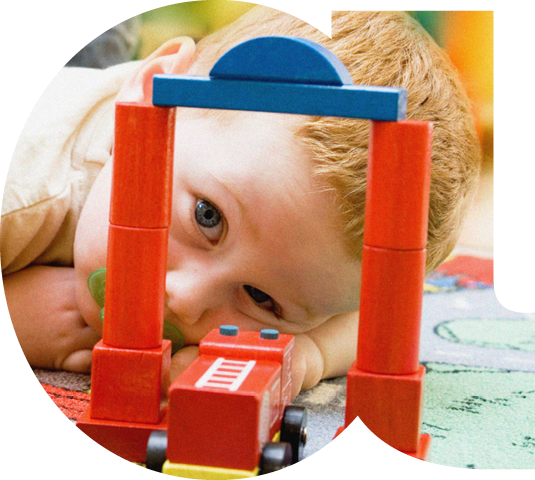Advocate Access
Get In Touch
Children at Risk

Trauma is perhaps the most avoided, ignored, belittled, denied, misunderstood, and untreated cause of human suffering. — Peter Levine
Children at risk of needing services are often referred to as “children from hard places” or those who have experienced adverse childhood experiences (ACEs). These children have faced difficult circumstances early in life, such as abuse, neglect, or household dysfunction, which significantly impact their development and well-being. Understanding these challenges is essential for effective prevention and intervention.
-
Trauma
Childhood trauma can have profound and lasting effects on adults, impacting their emotional, psychological, and physical well-being. Adults who experienced trauma in their formative years often struggle with anxiety, depression, and post-traumatic stress disorder (PTSD). These emotional challenges can lead to difficulties in forming and maintaining healthy relationships, as trauma can disrupt the ability to trust and connect with others. Additionally, childhood trauma is linked to an increased risk of developing chronic health conditions such as heart disease, diabetes, and autoimmune disorders due to prolonged stress and its effects on the body.
The impact of childhood trauma extends beyond mental and physical health, influencing behavior and life choices. Many adults with a history of trauma may engage in self-destructive behaviors, including substance abuse and risky activities, as coping mechanisms. They might also experience challenges in professional settings, such as difficulty concentrating, low self-esteem, and a heightened sense of vulnerability. Understanding these long-term effects is crucial for providing appropriate support and interventions to help individuals heal and lead fulfilling lives.

-
ACEs
Adverse Childhood Experiences (ACEs) refer to a range of potentially traumatic events that occur during childhood (0-17 years). These experiences include various forms of abuse (emotional, physical, or sexual), neglect, and household dysfunction such as witnessing domestic violence, parental separation, or living with family members who have substance use disorders or mental health issues. ACEs can disrupt a child’s sense of safety and stability, leading to toxic stress that affects brain development and the body’s stress response systems.
The long-term effects of ACEs can be profound, influencing both physical and mental health well into adulthood. Individuals with a history of ACEs are at higher risk for chronic health conditions like heart disease, diabetes, and mental health disorders such as depression and anxiety. Additionally, ACEs can impact educational and occupational outcomes, leading to difficulties in maintaining stable employment and relationships. Preventing ACEs and mitigating their effects through supportive, nurturing environments is crucial for promoting healthier, more resilient individuals and communities.

-
TBRI®
Trust-Based Relational Intervention (TBRI) is an attachment-based, trauma-informed approach designed to meet the complex needs of children who have experienced early adversity, toxic stress, or relational trauma. Developed by Dr. Karyn Purvis and Dr. David Cross at Texas Christian University, TBRI focuses on three core principles: Connecting, Empowering, and Correcting. These principles aim to build trust, address physical and emotional needs, and guide children toward positive behavioral changes through compassionate and consistent caregiving..
In 2024, our organization proudly became a TBRI Ambassador organization, reflecting our commitment to implementing and promoting this transformative approach. As a TBRI Ambassador, we are dedicated to creating healing environments for children and families, ensuring that our practices are grounded in the latest research and best practices in trauma-informed care. This designation underscores our ongoing efforts to support and empower those we serve, as well as further educate our greater community, fostering resilience and positive outcomes for children from hard places.

-
Trafficking & Exploitation Prevention
Child exploitation and trafficking are significant dangers in the United States, affecting thousands of children each year. These crimes often involve severe abuse and manipulation, with traffickers using violence, threats, and psychological coercion to control their victims. Child sex trafficking is particularly pervasive, and the exploitation can occur in various settings, including online platforms, hotels, and private residences. Additionally, labor trafficking, though less common, involves children being forced into work under harsh conditions, often in agriculture, domestic work, or factories.
Certain populations are at higher risk of falling victim to these crimes, including children involved in the child welfare system. Foster children, runaways, and those in juvenile justice systems are particularly vulnerable due to their unstable living situations and lack of consistent adult supervision. Traffickers often target these children, exploiting their need for love, security, and basic necessities. Other high-risk groups include homeless youth, children from low-income families, and those with a history of abuse or neglect. Addressing these vulnerabilities through targeted interventions and support systems is crucial in preventing exploitation and trafficking.

Childhood trauma can have profound and lasting effects on adults, impacting their emotional, psychological, and physical well-being. Adults who experienced trauma in their formative years often struggle with anxiety, depression, and post-traumatic stress disorder (PTSD). These emotional challenges can lead to difficulties in forming and maintaining healthy relationships, as trauma can disrupt the ability to trust and connect with others. Additionally, childhood trauma is linked to an increased risk of developing chronic health conditions such as heart disease, diabetes, and autoimmune disorders due to prolonged stress and its effects on the body.
The impact of childhood trauma extends beyond mental and physical health, influencing behavior and life choices. Many adults with a history of trauma may engage in self-destructive behaviors, including substance abuse and risky activities, as coping mechanisms. They might also experience challenges in professional settings, such as difficulty concentrating, low self-esteem, and a heightened sense of vulnerability. Understanding these long-term effects is crucial for providing appropriate support and interventions to help individuals heal and lead fulfilling lives.
Adverse Childhood Experiences (ACEs) refer to a range of potentially traumatic events that occur during childhood (0-17 years). These experiences include various forms of abuse (emotional, physical, or sexual), neglect, and household dysfunction such as witnessing domestic violence, parental separation, or living with family members who have substance use disorders or mental health issues. ACEs can disrupt a child’s sense of safety and stability, leading to toxic stress that affects brain development and the body’s stress response systems.
The long-term effects of ACEs can be profound, influencing both physical and mental health well into adulthood. Individuals with a history of ACEs are at higher risk for chronic health conditions like heart disease, diabetes, and mental health disorders such as depression and anxiety. Additionally, ACEs can impact educational and occupational outcomes, leading to difficulties in maintaining stable employment and relationships. Preventing ACEs and mitigating their effects through supportive, nurturing environments is crucial for promoting healthier, more resilient individuals and communities.
Trust-Based Relational Intervention (TBRI) is an attachment-based, trauma-informed approach designed to meet the complex needs of children who have experienced early adversity, toxic stress, or relational trauma. Developed by Dr. Karyn Purvis and Dr. David Cross at Texas Christian University, TBRI focuses on three core principles: Connecting, Empowering, and Correcting. These principles aim to build trust, address physical and emotional needs, and guide children toward positive behavioral changes through compassionate and consistent caregiving..
In 2024, our organization proudly became a TBRI Ambassador organization, reflecting our commitment to implementing and promoting this transformative approach. As a TBRI Ambassador, we are dedicated to creating healing environments for children and families, ensuring that our practices are grounded in the latest research and best practices in trauma-informed care. This designation underscores our ongoing efforts to support and empower those we serve, as well as further educate our greater community, fostering resilience and positive outcomes for children from hard places.
Child exploitation and trafficking are significant dangers in the United States, affecting thousands of children each year. These crimes often involve severe abuse and manipulation, with traffickers using violence, threats, and psychological coercion to control their victims. Child sex trafficking is particularly pervasive, and the exploitation can occur in various settings, including online platforms, hotels, and private residences. Additionally, labor trafficking, though less common, involves children being forced into work under harsh conditions, often in agriculture, domestic work, or factories.
Certain populations are at higher risk of falling victim to these crimes, including children involved in the child welfare system. Foster children, runaways, and those in juvenile justice systems are particularly vulnerable due to their unstable living situations and lack of consistent adult supervision. Traffickers often target these children, exploiting their need for love, security, and basic necessities. Other high-risk groups include homeless youth, children from low-income families, and those with a history of abuse or neglect. Addressing these vulnerabilities through targeted interventions and support systems is crucial in preventing exploitation and trafficking.


